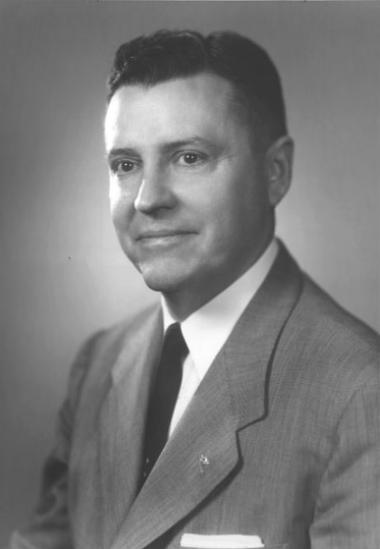 SKC Films Library SKC Films Library |
| SKC Films Library >> American History >> United States: General History and Description >> Late 20th Century, 1961-2001 > Biography, A-Z |
| Ralph Yarborough Senator
Ralph Webster Yarborough was born in Chandler, Texas, on June 8, 1903, the seventh of eleven children of Charles Richard and Nannie Jane (Spear) Yarborough. He was appointed to the United States Military Academy at West Point in 1919 but dropped out the following year. He then attended Sam Houston State Teachers College, paid his way through the University of Texas by working at various jobs, and graduated from the law school in 1927. In 1928 he married Opal Warren, with whom he had one son. Yarborough worked for an El Paso law firm until 1931, when he was hired as an Assistant Attorney General. In the latter capacity he gained recognition by winning several cases against major oil companies and successfully establishing the right of public schools and universities to oil-fund revenues. The million-dollar settlement he won in the Mid-Kansas case was the second-largest in Texas history at that time, and his work ultimately secured billions of dollars for public education. His work earned him an appointment to a State District Judgeship in 1936, and he was elected to that office later the same year. He made his first bid for statewide elective office in 1938, when he came in third in the race for Attorney General. Yarborough served in both Europe and the Pacific as a member of the U.S. Army's 97th Division during World War II, and ended the war as a Lieutenant Colonel with a Bronze Star and a Combat Medal. After the war he returned to Austin and the practice of law. In 1952 Yarborough challenged incumbent Texas Governor R. Allan Shivers in the Democratic primary, but lost. He lost to Shivers again in 1954, and to U.S. Senator Marion Price Daniel in 1956. Daniel went on to win the general election, and in 1957 Yarborough joined 21 other candidates in a race for the vacated Senate seat. This time he came out ahead, with 38 percent of the vote. Yarborough being congratulated on winning the
special election for U.S. Senator in April 1957. In the Senate, Yarborough quickly separated himself from many of his fellow southern Democrats by being one of only five southern Senators to vote for the Civil Rights Act of 1957. He went on to win a full term in 1958, and was reelected in 1964. In his years in the Senate Yarborough supported most of President Lyndon Johnson's "Great Society Program." He voted for the Civil Rights Act of 1964 and was one of only three southerners to support the Voting Rights Act of 1965; sponsored or co-sponsored the Elementary and Secondary Education Act (1965), the Higher Education Act (1965) the Bilingual Education Act (1967), and the updated GI Bill of 1966; co-wrote the Endangered Species Act of 1969; sponsored legislation establishing three national wildlife sanctuaries and two national monuments in Texas; and was an advocate for such public-health measures as the Occupational Health and Safety Act, the Community Mental Health Center Act, and the National Cancer Act of 1970. Defeated in the 1970 Democratic primary by Lloyd Bentsen, Jr., Yarborough left the Senate in 1971. He made a run for John G. Tower's Senate seat in 1972 but lost in the primary, after which he returned to the practice of law in Austin. He died in Austin on January 27, 1996, and was buried in the State Cemetery. SOURCE SEE ALSO |
| SKC Films Library >> American History >> United States: General History and Description >> Late 20th Century, 1961-2001 > Biography,
A-Z This page was last updated on May 31, 2017. |
